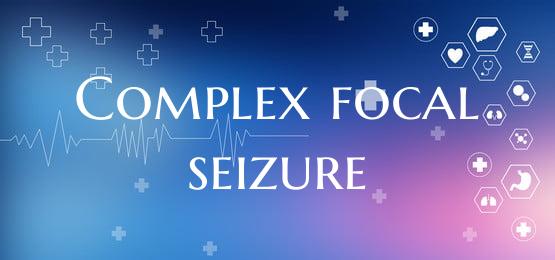
Complex focal seizure
Complex focal seizures, also known as focal dyscognitive seizures or complex partial seizures, are a type of seizure that originates in a specific area of the brain. Unlike generalized seizures that affect the whole brain, complex focal seizures start in one region and may result in alterations in consciousness or awareness.
Symptoms of complex focal seizures can vary widely depending on the part of the brain affected. Some common signs include staring blankly, repetitive movements such as lip-smacking or hand rubbing, confusion, inability to respond to others, or experiencing strange sensations or emotions. These seizures may also involve automatic behaviors like walking in circles or performing repetitive tasks.
Diagnosing complex focal seizures typically involves a detailed medical history, physical examination, and diagnostic tests such as EEG (electroencephalogram) to monitor brain activity. Imaging tests like MRI or CT scans may be used to identify any underlying structural issues or abnormalities in the brain.
Treatment for complex focal seizures often involves medications such as anti-seizure drugs to help control and manage the frequency and intensity of seizures. In some cases, surgery or other interventions may be recommended if medications are not effective. It is essential for individuals with complex focal seizures to work closely with healthcare providers to develop a personalized treatment plan and ensure proper management of their condition.
Living with complex focal seizures can present challenges, but with proper medical care, support from loved ones, and adherence to treatment plans, individuals can lead fulfilling lives. It is crucial to educate oneself about the condition, recognize triggers, and establish a seizure action plan to promote safety and well-being.
In conclusion, complex focal seizures are a specific type of seizure that originates in a particular area of the brain, leading to altered consciousness and various symptoms. Early diagnosis, appropriate treatment, and proactive management are key in effectively dealing with complex focal seizures and improving the quality of life for those affected by this condition.